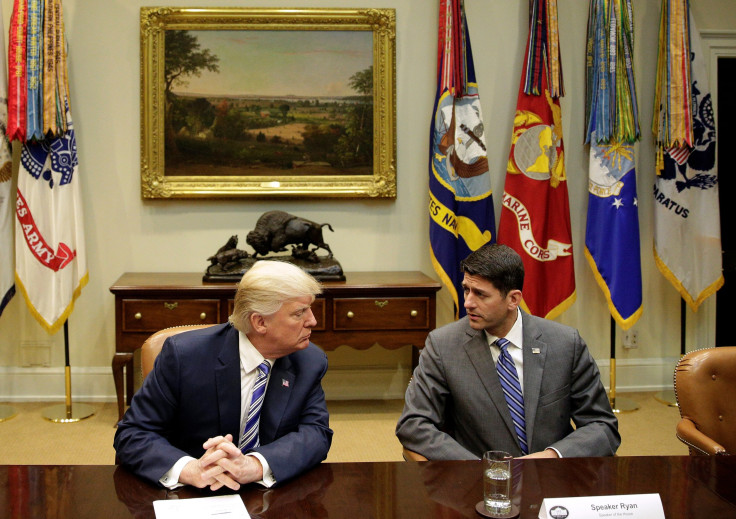What Is The Emoluments Clause? Ethics Office Says It Can't Look Into Trump's Possible Violation

The Office of Government Ethics (OGE) will not investigate whether President Donald Trump's business dealings violate a constitutional provision that limits a president from receiving money or gifts from the government, above and beyond his mandated salary, according to a report.
In a letter dated May 22., Washington Sen. Patricia Lynn Murray had requested the OGE to probe the possibility of Trump getting federal government deals along with his private business, which violates the Constitution's domestic emoluments clause.
Read: President Trump Will Not Assert Power To Stop Former FBI Director James Comey From Testifying
Domestic emoluments clause, or the presidential compensation clause, is a little-known provision of the U.S. Constitution that states: "The President shall, at stated times, receive for his services, a compensation, which shall neither be increased nor diminished during the period for which he shall have been elected, and he shall not receive within that period any other emolument from the United States or any of them."
The president receives $400,000 on a monthly basis, for his services during the term for which he is elected, and in addition, an expense allowance of $50,000 is allocated for him to assist in defraying expenses relating to or resulting from the discharge of his official duties.
Trump has reportedly been accused of violating the domestic emoluments clause with his frequent golfing trips, flights to his Mar-a-Lago estate in Florida in the government's private jet and dinners at the Trump International Hotel, raising concerns. For instance, the Department of Defense is considering to rent a floor of Trump Tower, which could cost up to $1.5 million per year. The Secret Service is also considering on renting a space in the Trump Tower. When the president visits Mar-a-Lago resort for official or vacation purpose, he is always accompanied by other federal employees. All these expenses seem like emoluments from the U.S., according to the U.S. News & World Report.
However, the OGE lacks jurisdiction to examine whether Trump is violating the Constitution or not, director Walter Shaub said in response to Murray. Shaub replied: "The emoluments issues are presently under judicial review, and, within the executive branch, are under the sole purview of the Department of Justice. OGE has no authority to investigate or order corrective action on the part of the President. Ultimately, under the Constitution, the authority to oversee the Presidency rests with the Congress."
Meanwhile, the ethics office has been flooded with inquiries and complaints involving Trump administration's conflicts of interest and ethics since the time the president took the office in January. In an interview with the National Public Radio in April, Shaub said public inquiries and complaints involving Trump administration have been coming to the ethics office in huge numbers, which has only advisory power.
The OGE, which was formed after the Watergate scandal, is a 75-person agency with a $15 million annual budget. While the office oversees a network of 4,500 ethics officials working across the executive branch, it does not have the power to enforce ethics rules. The OGE only has advisory powers.
"We've even had a couple days where the volume was so huge it filled up the voicemail box, and we couldn't clear the calls as fast as they were coming in," Shaub said.
© Copyright IBTimes 2024. All rights reserved.






















